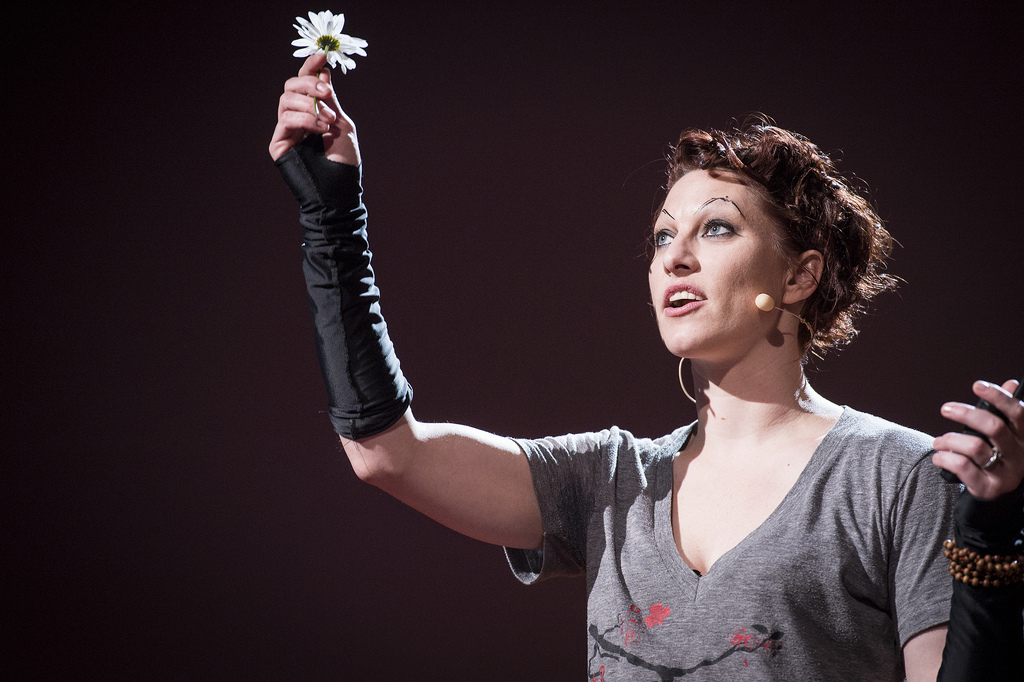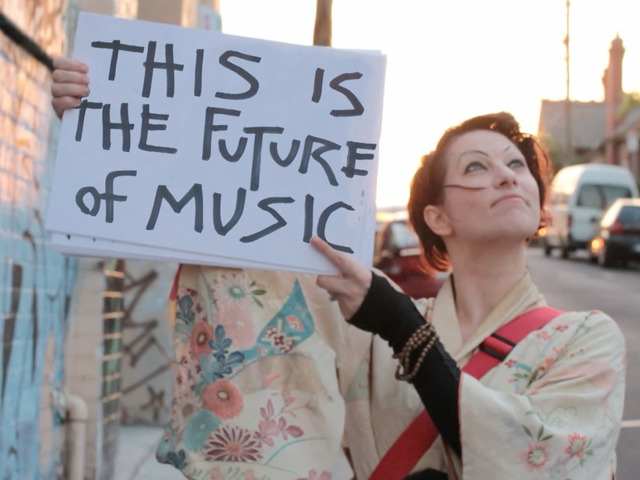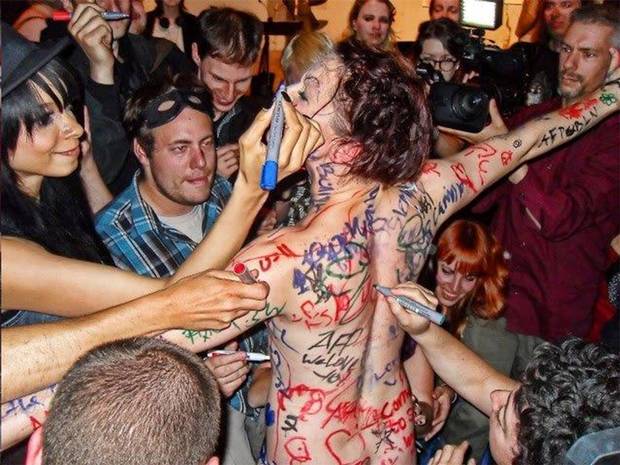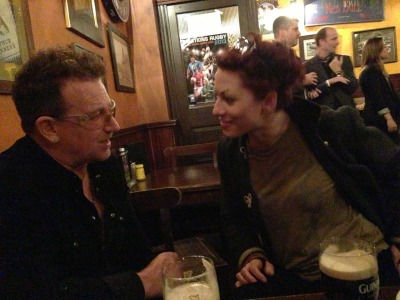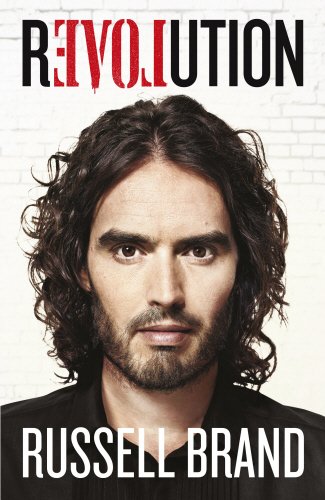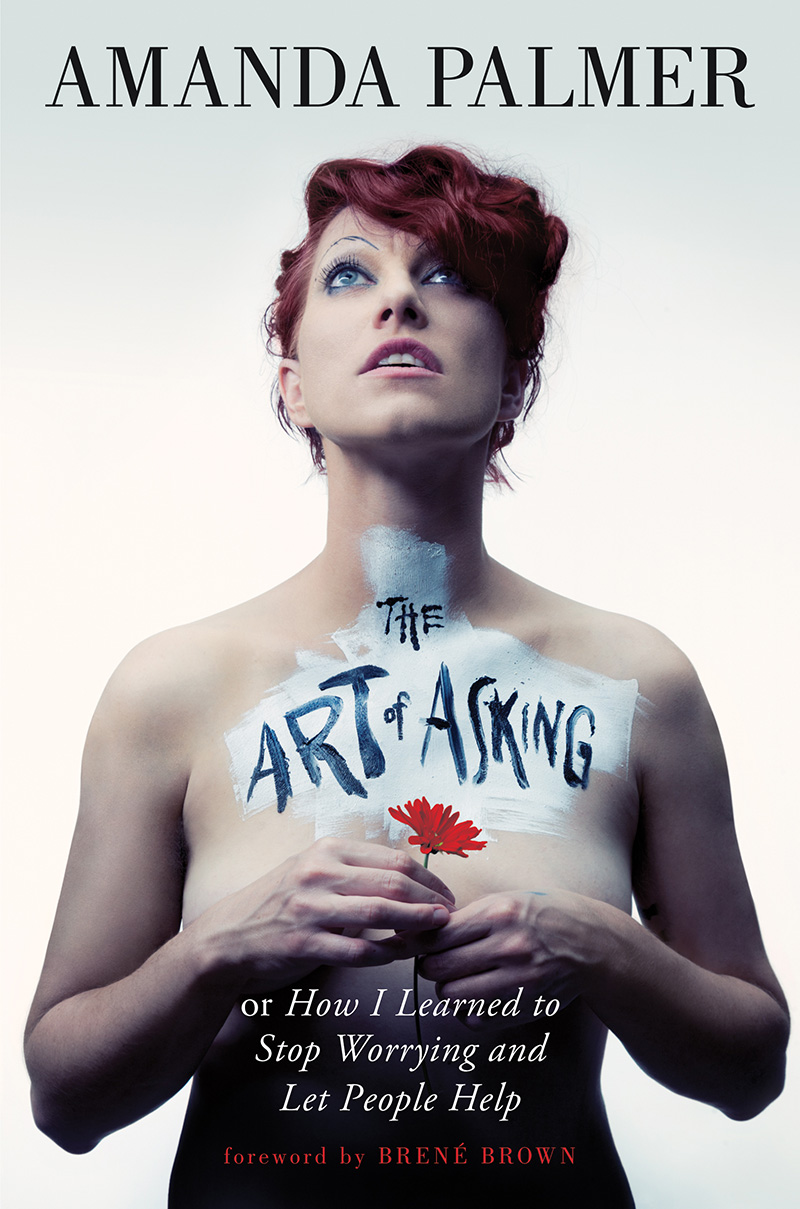As much as Amanda Palmer – ex-busker, stripper, actress, poet, performer, artist (the list goes on) – insists that her new book outlines The Art of Asking, I would suggest her craft is in fact The Art of Selling. So is the same with Bono, so is the same with Russell Brand.
Amanda Fucking Palmer, as she is also known, has been performing since 2000, first with the punk cabaret duo, Dresden Dolls, then the highly controversial conjoined-twin mime act Evelyn Evelyn, and now with her new band; Amanda Palmer And The Grand Theft Orchestra. Whilst fame is not new to her, she has only recently become iconic. Having previously worked as a living statue for many years, she is the internet generation’s busking poster girl. She has performed across the arts, on the streets and on the stage, and boasts over 9 million hits on her YouTube TED talk. The talk focusses on how she created the most financially successful crowd-funded music appeal of all time.
And, for me, that is where she exists as an important voice in the world of busking. She gained global recognition and acclaim for her successful launching of the album, Theatre is Evil, for pre-order on Kickstarter. The project was ultimately backed by 24,883 supporters. They raised a grand total of $1,192,793. Bear in mind that she intended to make only $100,000. At the time this was a record. She represents the very essence of a contemporary busker, poised elegantly between artistic integrity and business nous.
Palmer refers to crowdfunding as “an ecosystem for asking” and I think she is right. She acknowledges that the form of any artistic expression changes organically over time and equates money in the hat to an online transaction. After all, busking is a job; “it begins and ends with the exchange of cash for a product”, she wrote in her recent piece for The Guardian promoting The Art of Asking. She is pragmatic, realistic, and refers to this fundamental precept of busking on The Dresden Dolls’ self-titled CD, with the song “The Perfect Fit”:
“I can paint my face
And stand very, very still
It’s not very practical
But it still pays the bills”
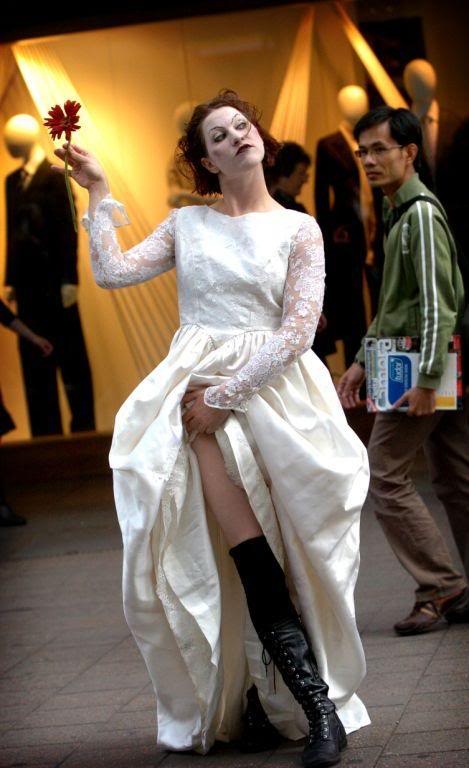
It is as ignorant to use the term e-begging as it is to suggest talented street-performers beg for a living. She represents the vast majority of buskers, who are often fetishized and seek only the respect granted to other performers. Artists make art, and should be respected for it, on the street or in the auditorium.
Palmer is central the delocalization of the music industry, acknowledging that “giants such as U2, Lorde, Beyoncé and Radiohead, the band in your local bar and everyone between: they’re all simply trying to find a place from which they can safely busk in the new digital village.”
She is acutely aware of a changing musical landscape; those who would have formerly been local heros have the potential to become internationally famous (on a small scale as well as a large one) through social media and the internet.Today, instead of playing your first gig at the local pub, chances are you will flick on a webcam, and record yourself performing to a non-existent physical audience and an infinite virtual one. People criticize the impersonal nature of such a practice. And buskers know better than anyone that a real-life, eye-to-eye connection is often the difference between success and failure, but one cannot argue against the internet’s vast outreach potential.
She uses an analogy in which she describes the work of a stripper to illuminate how we (not just street-performers, musicians and artists, but all of us) should look to cherish personal bonds and not attempt to convert the masses:
“Dita Von Teese, a star in the contemporary burlesque revival scene, once recounted something she had learnt in her early days as a stripper. Her colleagues – clad in standard blinged-out club gear – would strip bare for an audience of 50 guys in the club, and each of them would tip a dollar. Dita would take to the stage wearing satin gloves, a corset and a tutu, and do a sultry striptease down to her underwear, confounding the crowd. And though 49 guys would ignore her, one man would tip her $50. That man, Dita said, was her audience. This is the essence of crowdfunding, and moreover, the essence of making it nowadays as an indie musician; you march outside the commercial marketplace into a clearing, show whatever it is that you’ve got, then you bond with those who decide they want…it.”
So is The Art of Asking simply directing your question at the right audience? This is where the problems start to creep in. Amanda’s analogy may apply to certain fields, but not necessarily busking. She has already told us that busking is an “exchange of cash for a product”, albeit a memorable and artistic one. With the view to maximise donations, it seems wise for a busker to appeal to the masses.
Of course, any one particular artform will not appeal to every passerby. Some people who are interested and engaged will decide against making a donation, or simply won’t have any change in their pockets. Based on these facts, street-performers should look to widen their audience, not contract it.
When I started reading about Amanda Palmer I saw her as Bono’s musical antithesis. Apple users are force fed shit U2 songs they don’t want, whereas The Grand Theft Orchestra immediately ask if you want to be involved. If you are listening to Amanda Palmer’s music and feel short-changed the blame lies with you. She promotes the notion of microcommunities, engendered through the Web, and provides a sense of identity in an industry fast losing its own. I was very keen. Then I saw her tumblr photograph captioned ‘me & bono drinking guinness’
Further research reveals certain flaws in the singer’s rhetoric. She was publicly criticised for involving fans in her band on a voluntary basis shortly after they donated such a huge sum on Kickstarter. Her poem, “a poem for dzhokhar”, seems less an attempt to deal with human atrocity and more an attempt sell the idea of Amanda Palmer, putting her brand in the middle of the discussion. Her recent book retails at $27. That got me thinking about the new title for her already released book.
She has mastered asking, but the art is selling.
Bono, Palmer and other celebrity figures (Russell Brand springs to mind) fall down at the final hurdle. They are viewed as visionaries in some sections of society, revolutionaries in others, but ultimately adhere to consumerism.
She states that “asking in and of itself is the fundamental building block of any relationship”, which is a pretty radical and reductive view to hold, albeit a fascinating one. The eight year old should ask her piano teacher which chords go well together, the student should ask his professor how to better persuade with words and the artist should ask their audience for, well, what? Money? Advice? Compassion?
Frankly, we live in a consumerist world, and Palmer is one of its benefactors. Whilst everyone and anyone seems keen to scream expletives or superlatives about the controversial singer, there is a relatively unexplored rupture between Palmer the artist and Palmer the businesswoman. She is a great storyteller with some very interesting, stark beliefs but read the book with necessary caution. “I’m doing a book concert tour. I’m basically going around the country doing concerts with the book in my hand.”
Sell, sell, sell.
I cannot help but detect the correlation between her work and Russell Brand’s. His recent book costs £20 and has similar issues of rupture. He, aside to some very pertinent and thought-provoking social commentary, attacks institutions heavily steeped in perceived evil – corporations, capitalism, Margaret Thatcher – and does so with eloquence. I think Palmer’s ideology is made of thicker stuff than Brand’s, but equally do not think it is gospel. I respect her artistic goals, alongside all those who busk. Decentralise art; problematize our ideas of where and when we should consume it, make someone stop on the street. But, and it’s a big but, I keep remembering her and Russell sitting on their millions, selling ideology to their adoring fans.
Join the Art of Asking revolution if you can afford it.
